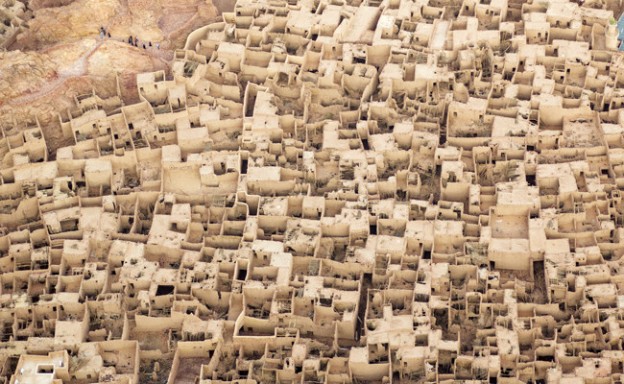Saudi Arabia has constructed with Chinese help a facility for extracting uranium yellowcake from uranium ore, an advance in the oil-rich kingdom’s drive to master nuclear technology…Even though Riyadh is still far from that point, the facility’s exposure appears certain to draw concern in the U.S. Congress, where a bipartisan group of lawmakers has expressed alarm aboutabout Saudi Crown Prince Mohammed bin Salman’s 2018 vow that “if Iran developed a nuclear bomb, we will follow suit as soon as possible.” ….Saudi Arabia has no known nuclear-weapons program, operating nuclear reactors or capacity to enrich uranium. But it says it wants to acquire nuclear plants that Saudi authorities say will generate power and reduce its reliance on oil, its principal export…
“Yellowcake” is a milled form of uranium ore which occurs naturally in Saudi Arabia and neighboring countries such as Jordan. It is produced by chemically processing uranium ore into a fine powder. It takes multiple additional steps and technology to process and enrich uranium sufficiently for it to power a civil nuclear energy plant. At very high enrichment levels, uranium can fuel a nuclear weapon…Olli Heinonen said that…yellowcake facility alone wouldn’t mark a significant advance unless the yellowcake is converted into a compound known as uranium hexafluoride and then enriched. But Mr. Heinonen said of the Saudis, “Where is the transparency? If you claim your program is peaceful, why not show what you have?”
One Western official said the facility is located in a remote desert location in the general vicinity of al Ula, a small city in northwest Saudi Arabia. Two officials said it was constructed with the help of two Chinese entities. While the identities of these entities couldn’t be learned, the China National Nuclear Corp. signed a memorandum of understanding with Saudi Arabia in 2017 to help explore its uranium deposits. A second agreement was signed with China Nuclear Engineering Group Corp. That followed a 2012 pact announced between Riyadh and Beijing to cooperate on peaceful uses of nuclear energy.
Riyadh has expressed a desire to master all aspects of the nuclear fuel cycle. It is constructing with Argentina’s state-owned nuclear technology company a small research reactor outside of Riyadh. In recent years, the Saudis have significantly expanded their nuclear workforce, experts say, through academic nuclear engineering programs and growing research centers. In addition to its agreement with Argentina, the Saudis are collaborating with South Korea in refining the design of a small commercial reactor to be built in Saudi Arabia, and that could also be marketed to other nations in the Middle East and Southeast Asia. It also has public cooperation agreements with Jordan on uranium mining and production.
Excerpts from Warren P. Strobel et al., Saudi Arabia, With China’s Help, Expands Its Nuclear Program, WSJ, Aug. 4, 2020

